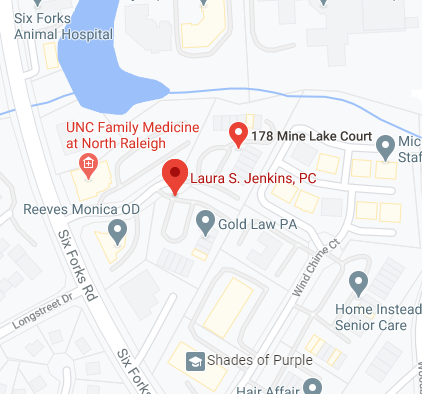In North Carolina, when a worker is injured on the job, he or she is eligible to receive workers’ compensation benefits to cover medical expenses as well as lost wages due to being unable to work. However, the workers’ comp payments only cover about ⅔ of an employee’s weekly paycheck, not to exceed $1,102.00 for injuries that occurred in 2021. For some, losing a percentage of their weekly pay ends up weighing heavily on their finances. Our workers’ comp law firm receives many questions from clients wanting to return to work or continue working a second job in order to make enough income while still receiving benefits. Here are some of the possible answers to those questions - but as always, consult your attorney to see if these apply to you.
Can I Return to Work on Light Duty and Still Receive Workers’ Comp Payments?
In many cases, an employee receiving workers’ comp cannot return to work unless their doctor gives them the green light to go back to their jobs ‘on light duty’, meaning the employer will need to follow the doctor’s recommendation to make accommodations for the injured employee to perform their job duties with restrictions, or another job compatible with the worker’s current physical restrictions. It is often the case that an employee on light duty will be receiving less than normal wages. When that happens, the employee is still eligible to receive workers’ comp checks until they are able to return to their normal job duties without restrictions.


North Carolina laws now allow employees to return to work and receive full wages while still on a trial return, in which an employee can return to work on a trial period not to exceed nine months. If after several weeks, the employee finds that their work-related injury is still preventing them from performing their job duties, the employee will still be eligible to step away from their job and resume workers’ comp benefits. This is a step that may or may not go smoothly, so it is always best to consult a workers’ comp attorney to see how you should proceed.
How Does Workers’ Comp Work if You Have Two Jobs?
The issue of receiving workers’ comp benefits while holding a second job is another question our law firm often receives. It is not unusual for injured workers to find themselves trying to figure out how to make up for the financial gap left by workers’ comp checks, as they only cover ⅔ of a person’s weekly pay. However, holding a second job may or may not affect your ability to receive benefits.
If you already had a second job when you got injured, you may still be able to receive benefits. It is not uncommon for insurance companies to try and fight back to reduce your workers’ comp pay, or to attempt to deny your claim saying that you are not disabled because you can work your second job.
However, if the job duties you perform at your second job are compatible with your physical restrictions, there is no reason you cannot continue working - but you may need a workers’ comp attorney to intervene so you can make sure the insurance company does not use your second job as a reason to cut or deny your payments. If you didn’t already have a second job and are planning to get one, you may want to consult an attorney first, as this can be a risky move that may result in the insurance company terminating your benefits.
Can I Get a New Job and Continue to Receive Workers’ Comp?
The short answer is sort of, it is possible to get a new job and still receive workers’ comp medical benefits. Because your workers’ comp pay is tied to your injuries and the lost wages you have incurred as a result of getting hurt, you should be able to continue receiving those benefits if you switch employers. There are, however, a few very important steps you need to take to ensure you don’t lose your benefits.


First, you need to talk to your physician to see if they will agree that your new job duties are still within your physical restrictions without coming in conflict with your ongoing disability and will not make the injury worse. It is best to wait for your doctor’s approval before accepting the new job. Once the physician gives you a green light, you need to report your new job and your wages to the workers’ comp insurance company. You’d be entitled to any wage differential.
What Should I Do If I Disagree With the Workers’ Comp Doctor?
Returning to work is a delicate issue, especially when you don’t feel like you have recovered enough to do so. In some cases, your doctor and your employer may think you have recovered enough to go back to work, but you feel like your injuries or your work-related illness are still a problem and you don’t believe you are ready to go back to your job. This puts many employees in a difficult position and puts their job and their benefits on the line.


If you disagree with your doctor’s opinion, you may file an additional medical evaluation with the NC Industrial Commission. In this case, it will be in your best interest to get the help of a worker’s comp attorney who can determine the best approach and can help you protect your rights. Contact the Law Office of Laura S. Jenkins for a free case evaluation to learn your options.







